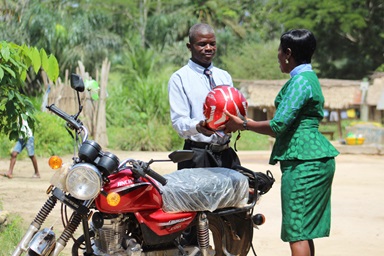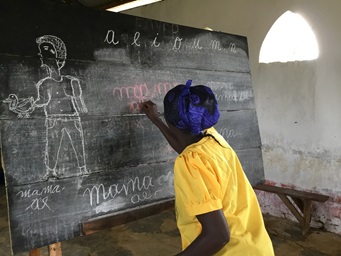Frederick Douglass, 1818-95, the black anti-slavery abolitionist, was a member of the African Methodist Episcopal Zion Church. It was one of three black Methodist denominations founded by African Americans leaving predominantly white Methodism because of its racial insensitivity and racism. Douglass penned these words about struggle and progress.
"If there is no struggle, there is no progress. Those who prefer to favor freedom, and yet deprecate agitation, are men who want crops without plowing up the ground."
Anniversaries, whether they are of marriages, churches or of the Civil Rights Act of 1964 are best celebrated when we remember the struggles that make progress much more sweet. Grace and I this November will have been married 57 years. This year, as we have done before, we will celebrate without pretending we have had no struggles. Anniversaries have deeper meaning when we do not pretend there have never been valleys amid the mountaintops.
Amnesia in response to or denial about the struggles of the past compromise the quality of anniversary celebrations. It is important, as we observe the 50th anniversary of the Civil Rights Act, we acknowledge the racial segregation that existed in voter registration, public schools, workplaces, buses and trains, and in restaurants, hotels and other “public” places. It is especially important that the nation and The United Methodist Church remember their respective histories of racial segregation.
read more
Interpreter Magazine invited six who were involved in the struggle for U.S. civil rights to share their reflections.
I write this, remembering the story of the birth of Jesus in Luke 2:3-5 (NRSV). “All went to their own towns to be registered. Joseph … went to be registered with Mary to whom he was engaged and who was expecting a child.” Suppose Joseph and Mary were denied the right to register, as blacks were denied the right to register and vote before the passage of the Civil Rights Act of 1964? I have discovered in my many years of ministry and civil rights activism that when people who are not black, think of themselves, or of Mary and Joseph denied equal access, the awfulness of blacks being denied because of their race, becomes almost unbelievable and repugnant.
I was 30 and pastor of Union Methodist Church in Boston when the Civil Rights Act of 1964 was passed. I was a Civil Rights volunteer in Mississippi Freedom Summer in Palmer's Crossing, Miss. That summer, three volunteers (one black and two whites) were killed. They, like other volunteers and I, were involved in voter education and registration because we anticipated the passage of the Civil Rights Act of 1964.
As we observe this anniversary, we cannot do so with conscience and integrity if we do not remember. We must recall those who gave their lives, those who were injured, those who lost their jobs, those who were rejected by their families, and Methodist clergy and lay people who were separated from their churches because they dared to engage in acts of protest against racial segregation.
One of the ways we as United Methodist could observe the 50th anniversary of the Civil Rights Act is to read and discuss the cover story of the June issue of The Atlantic magazine in our churches. Ta-Nehisi Coates wrote the article, “The Case for Reparations.” Rather than rejecting discussion because of the word “reparations,” we can discuss these words on the cover: “250 years of slavery. 90 years of Jim Crow. 60 years of separate but equal. 35 years of state-sanctioned redlining. Until we reckon with the compounding moral debts of our ancestors, America will never be whole.”
I believe that if United Methodists are serious about disciple making in the United States and the world and want to observe this 50th anniversary, we must admit that on matters of race, the USA is not yet whole.
We — more than any other church or religious body or any other institution in the nation — because of our racial struggles and progress, have an opportunity to engage in a race- and culture-based ministry as no other religious group in the nation can. We can do this by “plowing up the ground” that still holds vestiges of the racism of old, in order to plant a “crop” that reflects the inclusive love and justice of Jesus. May we be able to say “AMEN” to this ministry.
The Rev. Gilbert H. Caldwell, a retired elder of the Rocky Mountain Annual Conference, lives in Asbury Park, N.J. He was active in the Massachusetts unit of the Southern Christian Leadership Conference and worked in the Movement across the United States. His books include Something Within: The Writings of the Rev. Gilbert H. Caldwell.
Like what you're reading? Support the ministry of UM News! Your support ensures the latest denominational news, dynamic stories and informative articles will continue to connect our global community. Make a tax-deductible donation at ResourceUMC.org/GiveUMCom.




